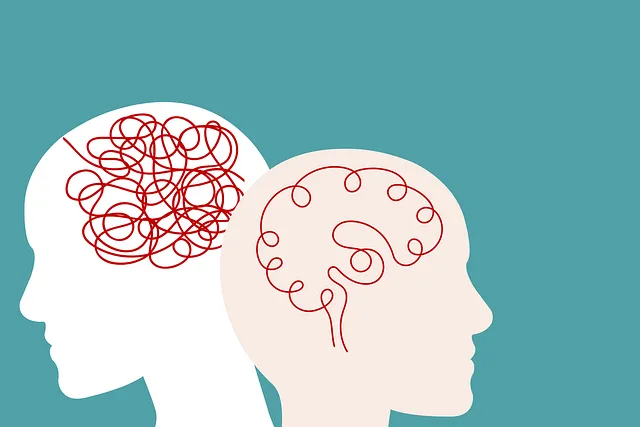Cultural competency is a critical component of healthcare excellence, as demonstrated by Kaiser Permanente's innovative training programs in Arvada, CO. Their focus on mental health services prioritizes empathetic care through understanding diverse cultural backgrounds and values. This approach improves patient satisfaction, trust, and treatment outcomes, addressing systemic barriers and promoting emotional healing. By offering interactive workshops, case studies, and peer discussions, Kaiser Permanente equips providers with skills for navigating complex cultural dynamics, leading to better patient outcomes and a healthier workforce. The Kaiser Permanente psychiatry phone number in Arvada provides access to culturally sensitive psychiatric services, reflecting a growing industry emphasis on stress management and holistic health in diverse communities.
Healthcare provider cultural competency training is an essential framework for delivering quality care in a diverse society. This article explores the critical need for cultural sensitivity, focusing on the successful approach by Kaiser Permanente in Arvada, CO. We delve into the impact of cultural competency on patient outcomes and provide strategies for psychiatry providers to enhance care through empathy. Additionally, we offer tips for continuous learning and improvement, highlighting resources like the Kaiser Permanente psychiatry phone number in Arvada.
- Understanding Cultural Competency in Healthcare: A Necessary Framework
- Kaiser Permanente's Approach to Training: Lessons from Arvada, CO
- The Impact of Cultural Sensitivity on Patient Outcomes
- Effective Strategies for Psychiatry Providers: Enhancing Care Through Empathy
- Overcoming Barriers: Tips for Continuous Learning and Improvement
Understanding Cultural Competency in Healthcare: A Necessary Framework

In the healthcare sector, cultural competency is an essential framework that enables professionals to deliver effective and empathetic care to a diverse range of patients. This involves understanding and appreciating the unique cultural backgrounds, beliefs, and values of individuals from various ethnic, racial, and social groups. At organizations like Kaiser Permanente, such as their psychiatry phone number Arvada service, cultural competency training is not just recommended but mandatory. It ensures that healthcare providers can navigate complex interpersonal dynamics, fostering a safe and supportive environment for all patients, regardless of their cultural identity.
By incorporating cultural competency into their practices, healthcare professionals can improve patient satisfaction, trust, and treatment outcomes. This involves learning effective communication strategies to bridge cultural gaps, understanding the impact of systemic barriers, and recognizing the importance of emotional healing processes tailored to individual needs. Stress Management Workshops Organization, for instance, offers resources that teach both patients and providers about these critical aspects, ultimately enhancing care quality and accessibility.
Kaiser Permanente's Approach to Training: Lessons from Arvada, CO

Kaiser Permanente, a renowned healthcare organization, has been at the forefront of implementing innovative training programs to enhance cultural competency among its mental health professionals. One notable example is their approach in Arvada, Colorado, where they’ve created a comprehensive curriculum focusing on building resilience and emotional well-being. This initiative aims to equip providers with the skills needed to navigate complex cultural dynamics effectively.
The program involves interactive workshops, case studies, and peer discussions centered around risk assessment for mental health professionals. By prioritizing these essential topics, Kaiser Permanente ensures that its staff is prepared to deliver culturally sensitive care. This strategy not only improves patient outcomes but also fosters a supportive environment where emotional well-being is promoted, mirroring their commitment to both excellence in healthcare and the holistic health of their workforce.
The Impact of Cultural Sensitivity on Patient Outcomes

Cultural sensitivity plays a pivotal role in shaping patient outcomes within the healthcare sector. In a diverse society like Arvada, where individuals from various ethnic and cultural backgrounds coexist, it’s essential for healthcare providers to understand and appreciate these differences. This understanding fosters effective communication, builds trust, and ensures tailored care. When psychiatric services are offered by organizations such as Kaiser Permanente, culturally competent practices can significantly improve patient satisfaction and adherence to treatment plans.
By prioritizing mental health awareness and burnout prevention strategies, healthcare providers equipped with cultural competency training can address the unique needs of their patients more effectively. This is particularly relevant in managing stress-related issues, a concern that transcends cultural boundaries yet manifests differently among diverse populations. Incorporating these practices not only enhances the overall patient experience but also contributes to better health outcomes, as evidenced by the growing emphasis on stress management within the industry, especially in areas like Arvada with its vibrant and culturally rich communities.
Effective Strategies for Psychiatry Providers: Enhancing Care Through Empathy

Enhancing patient care in psychiatry requires a deep understanding and appreciation for cultural differences. At Kaiser Permanente Arvada, we emphasize the importance of empathy as a powerful tool to improve mental health outcomes. Through active listening and genuine connection, psychiatric providers can foster an environment of trust and respect, addressing the unique needs and challenges faced by diverse patient populations.
Effective strategies involve engaging in self-awareness exercises to recognize personal biases and preconceptions. Building on this foundation, providers can develop confidence boosting skills, enhancing their ability to connect with patients from different cultural backgrounds. Preventing burnout is another key aspect; by prioritizing self-care and adopting coping mechanisms, healthcare professionals ensure they remain attuned to the emotional needs of their clients, thereby delivering consistent and compassionate care.
Overcoming Barriers: Tips for Continuous Learning and Improvement

Overcoming barriers to cultural competency is essential for healthcare providers aiming to deliver quality care to diverse communities. One effective strategy is ongoing education and self-reflection. Regular training sessions, workshops, and webinars can equip professionals with the latest knowledge and skills to navigate cultural nuances. Encouraging open dialogue and sharing best practices among colleagues fosters an environment of continuous learning.
Additionally, integrating mindfulness meditation techniques into daily routines can enhance emotional intelligence and empathy. Public awareness campaigns development centered around mental health can also bridge gaps by promoting understanding and reducing stigma. These initiatives, combined with active listening and adaptive communication strategies, contribute to building stronger connections between healthcare providers and patients from various cultural backgrounds, ultimately improving patient outcomes at institutions like Kaiser Permanente in Arvada.
Cultural competency training, as exemplified by Kaiser Permanente’s successful program in Arvada, CO, is a transformative tool for healthcare providers. By understanding and addressing cultural nuances, particularly in diverse communities, psychiatric care can be significantly improved. The impact of such training extends to enhanced patient outcomes, fostering an environment where empathy and sensitivity are the norms rather than exceptions. For those seeking expert guidance, Kaiser Permanente’s psychiatry services in Arvada offer valuable insights and resources, emphasizing the importance of continuous learning to overcome barriers and provide culturally competent care to all patients.






